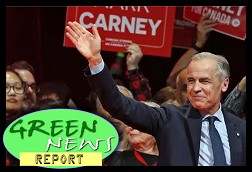Early data suggest new 'discriminatory', 'unconstitutional' Republican voting restriction seems to have worked well for them...
[This article now cross-published by Salon...]
 Despite a larger population and a contested race for an open gubernatorial seat, turnout in the state of Texas was reportedly down this year, as compared to the last mid-term election in 2010, by more than a quarter of a million votes.
Despite a larger population and a contested race for an open gubernatorial seat, turnout in the state of Texas was reportedly down this year, as compared to the last mid-term election in 2010, by more than a quarter of a million votes.
That data point --- a decrease of some 271,000 total voters this year --- is one of several, at least anecdotal early indicators that suggest the Texas GOP's strategy of suppressing the vote this year with polling place Photo ID restrictions seems to have worked.
Since 2003, Texas law had already required every voter to present an ID when voting at the polls in the Lone Star State. But the newer draconian restrictions that have been so controversial were finally in place for a federal general election for the first time this year, after state Republicans have been attempting to enact them since at least 2007.
We've spent quite a bit of time over the past year(s) reporting on the GOP attempt to implement these new polling place Photo ID voting restrictions, with all evidence suggesting that they are meant only to suppress the votes of minorities, students, the poor and other disproportionately Democratic-leaning constituencies.
In virtually every instance that the new, exceedingly restrictive law has come before federal authorities, it has been found plainly discriminatory. The law was struck down in 2012 as a discriminatory violation of the Voting Rights Act by both the U.S. Department of Justice as well as a three-judge federal panel on the D.C. District Court. It was struck down once again this year by a U.S. District Court in Texas after a full trial and a 147-page ruling [PDF] which found the law to be "purposefully discriminatory", an "unconstitutional poll tax", and likely to disenfranchise some 600,000 legally registered Texas voters as well as more than a million eligible voters.
Nonetheless, the U.S. Supreme Court allowed it to stay in place during this year's election, as the Republicans who run the state of Texas appeal the lower court's unambiguous ruling.
In the meantime, early data coming in from Texas suggests the law appears to have had its intended effect...
--- Click here for REST OF STORY!... ---



 Blowing Smoke.
Blowing Smoke. 'Green News Report' 5/6/25
'Green News Report' 5/6/25
 SCOTUS Allowing Publicly-Funded Religious Schools 'Would be a Ground-Breaking Disaster': 'BradCast' 5/7/25
SCOTUS Allowing Publicly-Funded Religious Schools 'Would be a Ground-Breaking Disaster': 'BradCast' 5/7/25 Trump Judge Blocks NC GOP Attempt to Steal 2024 State Supreme Court Election: 'BradCast' 5/6/25
Trump Judge Blocks NC GOP Attempt to Steal 2024 State Supreme Court Election: 'BradCast' 5/6/25 Prosecutors Resign After Trump U.S. Attny Strikes Deal With Felon Cop: 'BradCast' 5/5/25
Prosecutors Resign After Trump U.S. Attny Strikes Deal With Felon Cop: 'BradCast' 5/5/25 Sunday 'Good Buy, Dolly!' Toons
Sunday 'Good Buy, Dolly!' Toons Trump Losing Streak Continues into SECOND Hundred Days: 'BradCast' 5/1/25
Trump Losing Streak Continues into SECOND Hundred Days: 'BradCast' 5/1/25 'Green News Report' 5/1/25
'Green News Report' 5/1/25 100 Daze: 'BradCast' 4/30/25
100 Daze: 'BradCast' 4/30/25 Campaign to 'Impeach Trump Again' Gains Fresh Momentum: 'BradCast' 4/29/25
Campaign to 'Impeach Trump Again' Gains Fresh Momentum: 'BradCast' 4/29/25 'Green News Report' 4/29/25
'Green News Report' 4/29/25 And Then They Came for the Judges...: 'BradCast' 4/28/25
And Then They Came for the Judges...: 'BradCast' 4/28/25 Sunday 'Desperation' Toons
Sunday 'Desperation' Toons Trump EPA Guts Enviro Justice Office: 'BradCast' 4/24/25
Trump EPA Guts Enviro Justice Office: 'BradCast' 4/24/25 'Green News Report' 4/24/25
'Green News Report' 4/24/25 Sunday
Sunday  Largest U.S. Broad-caster Hoaxes Viewers to Help Gut FCC Rules: 'BradCast' 4/23/25
Largest U.S. Broad-caster Hoaxes Viewers to Help Gut FCC Rules: 'BradCast' 4/23/25 FCC on Precipice of Ending All Limits on Corp. Control of Local TV Stations
FCC on Precipice of Ending All Limits on Corp. Control of Local TV Stations GOP Earth Day 2025 Hypocrisies and Dilemmas: 'BradCast' 4/22/25
GOP Earth Day 2025 Hypocrisies and Dilemmas: 'BradCast' 4/22/25 Pope Francis Dies, Trump Still Alive and Criming: 'BradCast' 4/21/25
Pope Francis Dies, Trump Still Alive and Criming: 'BradCast' 4/21/25 Soc. Sec. Expert Warns DOGE of Collapse, Privatization: 'BradCast' 4/10/2025
Soc. Sec. Expert Warns DOGE of Collapse, Privatization: 'BradCast' 4/10/2025 Trump Blinks, Chaos Reigns, Markets Spike Amid Tariff 'Pause': 'BradCast' 4/9/25
Trump Blinks, Chaos Reigns, Markets Spike Amid Tariff 'Pause': 'BradCast' 4/9/25 SCOTUS Deportation Ruling Grimmer Than First Appears: 'BradCast' 4/8/25
SCOTUS Deportation Ruling Grimmer Than First Appears: 'BradCast' 4/8/25 Cliff Diving with Donald: 'BradCast' 4/7/25
Cliff Diving with Donald: 'BradCast' 4/7/25
 VA GOP VOTER REG FRAUDSTER OFF HOOK
VA GOP VOTER REG FRAUDSTER OFF HOOK Criminal GOP Voter Registration Fraud Probe Expanding in VA
Criminal GOP Voter Registration Fraud Probe Expanding in VA DOJ PROBE SOUGHT AFTER VA ARREST
DOJ PROBE SOUGHT AFTER VA ARREST Arrest in VA: GOP Voter Reg Scandal Widens
Arrest in VA: GOP Voter Reg Scandal Widens ALL TOGETHER: ROVE, SPROUL, KOCHS, RNC
ALL TOGETHER: ROVE, SPROUL, KOCHS, RNC LATimes: RNC's 'Fired' Sproul Working for Repubs in 'as Many as 30 States'
LATimes: RNC's 'Fired' Sproul Working for Repubs in 'as Many as 30 States' 'Fired' Sproul Group 'Cloned', Still Working for Republicans in At Least 10 States
'Fired' Sproul Group 'Cloned', Still Working for Republicans in At Least 10 States FINALLY: FOX ON GOP REG FRAUD SCANDAL
FINALLY: FOX ON GOP REG FRAUD SCANDAL COLORADO FOLLOWS FLORIDA WITH GOP CRIMINAL INVESTIGATION
COLORADO FOLLOWS FLORIDA WITH GOP CRIMINAL INVESTIGATION CRIMINAL PROBE LAUNCHED INTO GOP VOTER REGISTRATION FRAUD SCANDAL IN FL
CRIMINAL PROBE LAUNCHED INTO GOP VOTER REGISTRATION FRAUD SCANDAL IN FL Brad Breaks PA Photo ID & GOP Registration Fraud Scandal News on Hartmann TV
Brad Breaks PA Photo ID & GOP Registration Fraud Scandal News on Hartmann TV  CAUGHT ON TAPE: COORDINATED NATIONWIDE GOP VOTER REG SCAM
CAUGHT ON TAPE: COORDINATED NATIONWIDE GOP VOTER REG SCAM CRIMINAL ELECTION FRAUD COMPLAINT FILED AGAINST GOP 'FRAUD' FIRM
CRIMINAL ELECTION FRAUD COMPLAINT FILED AGAINST GOP 'FRAUD' FIRM RICK SCOTT GETS ROLLED IN GOP REGISTRATION FRAUD SCANDAL
RICK SCOTT GETS ROLLED IN GOP REGISTRATION FRAUD SCANDAL VIDEO: Brad Breaks GOP Reg Fraud Scandal on Hartmann TV
VIDEO: Brad Breaks GOP Reg Fraud Scandal on Hartmann TV RNC FIRES NATIONAL VOTER REGISTRATION FIRM FOR FRAUD
RNC FIRES NATIONAL VOTER REGISTRATION FIRM FOR FRAUD EXCLUSIVE: Intvw w/ FL Official Who First Discovered GOP Reg Fraud
EXCLUSIVE: Intvw w/ FL Official Who First Discovered GOP Reg Fraud GOP REGISTRATION FRAUD FOUND IN FL
GOP REGISTRATION FRAUD FOUND IN FL


























 For what it's worth, just a quick note in response to some of the folks who either disagreed with or were otherwise disgruntled by my observation over the weekend explaining why I believe that
For what it's worth, just a quick note in response to some of the folks who either disagreed with or were otherwise disgruntled by my observation over the weekend explaining why I believe that  Election officials in St. Louis County, Missouri were repeatedly warned by local Election Integrity advocates that a plan to supply enough paper ballots for only 15% of the electorate at polling places on Election Day there would not be enough, according to emails obtained by
Election officials in St. Louis County, Missouri were repeatedly warned by local Election Integrity advocates that a plan to supply enough paper ballots for only 15% of the electorate at polling places on Election Day there would not be enough, according to emails obtained by 
 On this week's
On this week's 
 On Monday, President Barack Obama, both in a surprisingly clear
On Monday, President Barack Obama, both in a surprisingly clear 

 This is a very smart post, particularly from someone calling themselves "potatohead" at DailyKos:
This is a very smart post, particularly from someone calling themselves "potatohead" at DailyKos:  Despite a larger population and a contested race for an open gubernatorial seat, turnout in the state of Texas was reportedly down this year, as compared to the last mid-term election in 2010, by more than a quarter of a million votes.
Despite a larger population and a contested race for an open gubernatorial seat, turnout in the state of Texas was reportedly down this year, as compared to the last mid-term election in 2010, by more than a quarter of a million votes. Though some 5,350 voters are known to have voted in the city of Stoughton in Dane County, Wisconsin on Tuesday, just 16 of those voters were interested in voting in a local ballot referendum calling for an amendment to the U.S. Constitution to help overturn the
Though some 5,350 voters are known to have voted in the city of Stoughton in Dane County, Wisconsin on Tuesday, just 16 of those voters were interested in voting in a local ballot referendum calling for an amendment to the U.S. Constitution to help overturn the 












